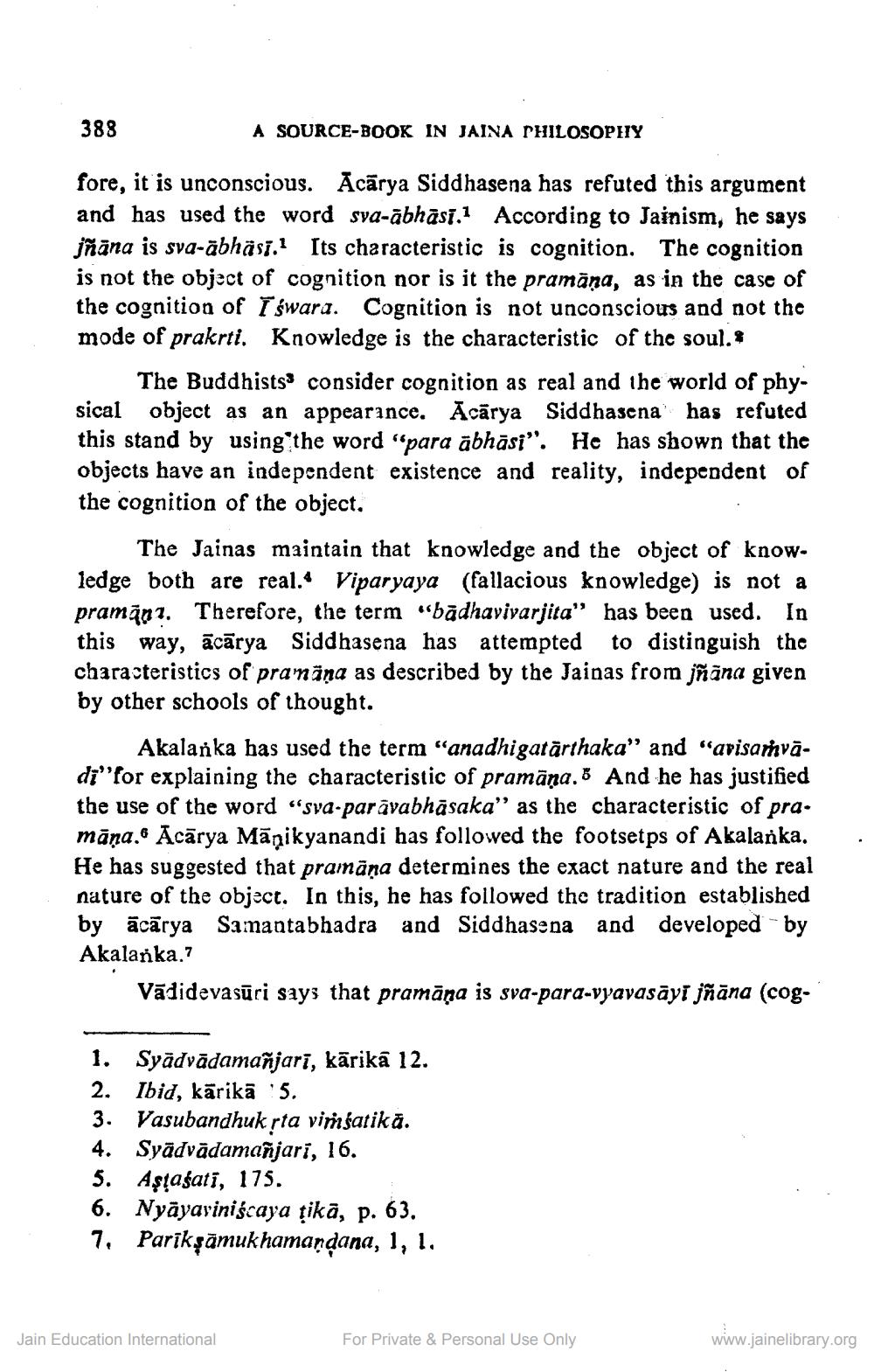________________
388
fore, it is unconscious. Acarya Siddhasena has refuted this argument and has used the word sva-ābhāsī.1 According to Jainism, he says jñāna is sva-abhäsī.1 Its characteristic is cognition. The cognition is not the object of cognition nor is it the pramāṇa, as in the case of the cognition of Iswara. Cognition is not unconscious and not the mode of prakrti. Knowledge is the characteristic of the soul.*
A SOURCE-BOOK IN JAINA PHILOSOPHY
The Buddhists consider cognition as real and the world of physical object as an appearance. Acarya Siddhasena has refuted this stand by using the word "para ābhāsi". He has shown that the objects have an independent existence and reality, independent of the cognition of the object.
The Jainas maintain that knowledge and the object of knowledge both are real. Viparyaya (fallacious knowledge) is not a praman. Therefore, the term "bādhavivarjita" has been used. In this way, ācārya Siddhasena has attempted to distinguish the characteristics of pramana as described by the Jainas from jñāna given by other schools of thought.
Akalanka has used the term "anadhigatārthaka” and “avisaṁvādi''for explaining the characteristic of pramāṇa. And he has justified the use of the word "sva-parāvabhāsaka” as the characteristic of pramāņa. Acārya Māņikyanandi has followed the footsetps of Akalanka. He has suggested that pramāṇa determines the exact nature and the real nature of the object. In this, he has followed the tradition established by ācārya Samantabhadra and Siddhasena and developed by Akalanka.7
Vādidevasūri says that pramāņa is sva-para-vyavasāyī jñāna (cog
1. Syadvādamañjarī, kārikā 12.
2. Ibid, kārikā 15.
3. Vasubandhuk ṛta vimsatikā.
4. Syadvādamañjarī, 16.
5. Aştasati, 175.
6. Nyāyaviniscaya țikā, p. 63.
7. Parikṣāmukhamaṇḍana, 1, 1.
Jain Education International
For Private & Personal Use Only
www.jainelibrary.org




